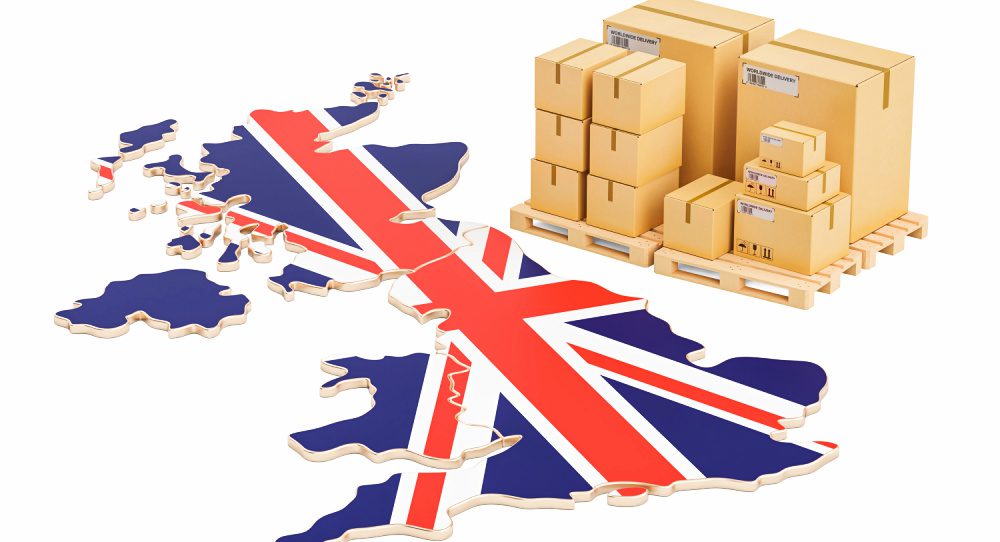While September to November was a period of upheaval in UK politics, the government announced their updated policy plans in the Autumn Statement 2022 on 17th November.
If you run a business importing goods into the UK for sale, then you’ll no doubt have been paying attention to the Chancellor’s announcement – but not every change was mentioned in his speech.
This blog highlights some of the important tax changes (or lack thereof) that could affect UK importers in 2023 and beyond.
Frozen VAT threshold until 2026
The annual turnover threshold for businesses becoming liable for VAT was set at £85,000 until April 2024, but it will now stay frozen at this level until April 2026.
As the threshold for paying VAT will stay the same while earnings are likely to rise to keep up with inflation, businesses may have to increase their prices to offset the costs.
The Chancellor defended this measure with a reminder that the VAT registration threshold in the UK is more than twice the amount of the EU and OECD averages.
No mention was made of any change to the actual VAT rate, which looks set to remain at 20% as standard (back up in 2022 from temporary reductions during the COVID-19 pandemic).
Cancelled Online Sales Tax
In recent years, some stakeholders raised concerns about business rates being an unfair burden on brick-and-mortar businesses, proposing an Online Sales Tax (OST) to rebalance the system and fund business rates relief.
HMRC carried out a consultation on this potential online shopping tax in the first half of 2022, but the government later announced in the Autumn Statement that they will not be implementing the suggested tax after all.
This is likely because designing and enforcing a tax for online sales would be far too complex, and would risk creating further unfairness between in-store and online business models.
Online vendors of imported goods therefore no longer have to worry about this new tax. The government should be publishing their response to the consultation shortly.
Alcohol duty freeze extension
Last September, then-Chancellor Kwasi Kwarteng’s Growth Plan 2022 proposed an extension of the freeze on alcohol duties for an additional year, until February 2024.
When this mini-budget was scrapped and Kwarteng was replaced by Hunt, the alcohol duty freeze was one of many proposals that were reversed in the Autumn Statement – meaning the freeze would end on 1st February 2023 as previously intended.
However, the government then announced in December that the freeze on alcohol duty rates would actually be extended by 6 months, remaining in force until 1st August 2023. Industry-wide alcohol duty reforms are then due to come into force from this date.
This extension means that alcohol prices may not rise as expected until the summer. Any further decisions on freezing or changing alcohol duties will depend on the Spring Budget, which is currently set to be announced on 15th March 2023.
Business rates revaluation in 2023
The Valuation Office Agency (VOA) has released the latest rateable values of non-domestic properties, which will take effect on 1st April 2023. Local councils use this value to calculate business rates, so if the rateable value of your premises has increased, then so might your tax bill.
Rather than funding a business rates tax cut with an Online Sales Tax, Chancellor Hunt announced that the government would introduce new and extended business rates relief schemes to ‘soften the blow’ on struggling UK businesses.
According to his Autumn Statement speech, these increasing reliefs and bill caps should save businesses almost £14 billion in the next 5 years, with nearly two-thirds of commercial properties expected to pay no more next year than they did in the current tax year.
Around 700,000 businesses are expected to benefit from improved protections against the burden of business rates, such as pubs, restaurants, and small shops.
Import tariffs suspended on 100+ goods
The Autumn Statement also included an announcement that the government will be suspending import tariffs for 2 years on 133 goods that are believed to be an important part of manufacturing processes for UK businesses.
This includes temporarily removing tariffs as high as 18% on a variety of items used across the automotive industry, pharmaceuticals, agriculture, and more. Importers of food and drink are likely to benefit the most, with almost three dozen foodstuffs exempted.
These suspensions apply for goods imported from overseas used in UK production, but will currently only be granted to those who successfully applied for duty suspensions during the previous window in June–July 2021.
The next window for duty suspension applications has not yet been set, but is expected to open sometime in 2023. In the meantime, you should make sure that you’re importing goods with the most advantageous VAT rate using the Trade Tariff checker.
Manage your import taxes with bonded warehousing
In addition to the measures discussed above, as you may already know, planned changes to VAT penalties are taking effect from 1st January 2023.
The new VAT penalty system charges a percentage of your outstanding bill according to how late your payment is, on top of daily interest, with a new points system for missing VAT return deadlines that could add a £200 fine to your bill.
The Customs Handling of Import and Export Freight (CHIEF) system for documenting imports and exports is also closing down on 31st March 2023, meaning that all UK importers should already be registered for and using the new Customs Declaration Service (CDS).
If you’re looking for ways to improve your importing operations in 2023, and want to stay on top of VAT and import duties, have you considered the benefits of bonded warehousing?
Using a bonded warehouse allows you to store your imported goods duty-free for as long as you need, so you’ll only have to pay VAT once the goods actually enter the UK market. This could help you to better organise your administration, logistics, and financial planning.
To find out more about how our bonded warehouse in England could help to improve your import business, get in touch with the team at John K. Philips today by calling 01744 751 000 or filling out our contact form with your enquiry.


